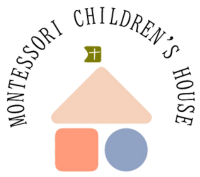CURRICULUM
The Montessori Curriculum encompasses five essential study areas for children:
Practical Life, Sensorial, Mathematics, Language, and Cultural Studies. These areas feature a carefully curated collection of educational materials that gradually increase in complexity. Children progress through the Montessori Curriculum at their own pace, guided by their developmental stage and interests.
Montessori instructors begin by introducing fundamental lessons to familiarize children with the names and learning objectives associated with each Montessori material. After these Key Lessons, children independently engage with the materials, using them to practice, explore, and connect with core learning outcomes. During this phase, Montessori educators assume an observational role, closely monitoring how children absorb knowledge and documenting their progress. They intervene only when necessary, aiming to foster children’s independence, as there’s a direct correlation between a child’s sense of empowerment and their ability to learn and retain new skills and information.
New lessons are introduced when a child demonstrates readiness to advance to the next level. Through repeated use and practice, children master the progression of Montessori materials, developing a solid understanding of each curriculum area.

